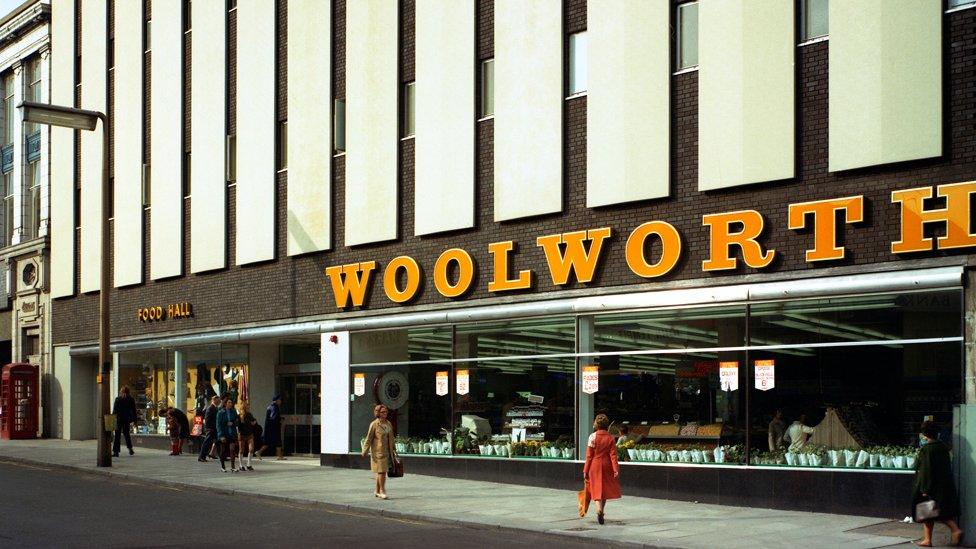Last BHS stores close for final time after 88 years
- Published
A tour inside a BHS "ghost store" in Edinburgh
The last BHS stores have closed their doors for the final time, ending an 88-year presence on the High Street.
The closure of the last 22 shops around the UK on Sunday came after the retailer was placed into administration in March but failed to find a buyer.
Previous owners Dominic Chappell and Sir Philip Green have been criticised for mismanaging the chain and failing to protect the company pension scheme.
Administrators had already made 141 store closures over recent weeks.
These included its flagship store on Oxford Street in London's West End.
British Homes Stores, a name that was a fixture on most UK High Streets, has disappeared nearly a century after first opening in Brixton, south London.
Simon Prager, who worked for BHS for 16 years and helped to oversee the closure of Bristol's Cribbs Causeway branch, said: "I don't think even a year ago anyone would have thought it would come to this.
"I think there probably was anger at some point in the last three months. But I think everyone's well beyond that. And I think it is now just sadness that it's come to this."

At the scene
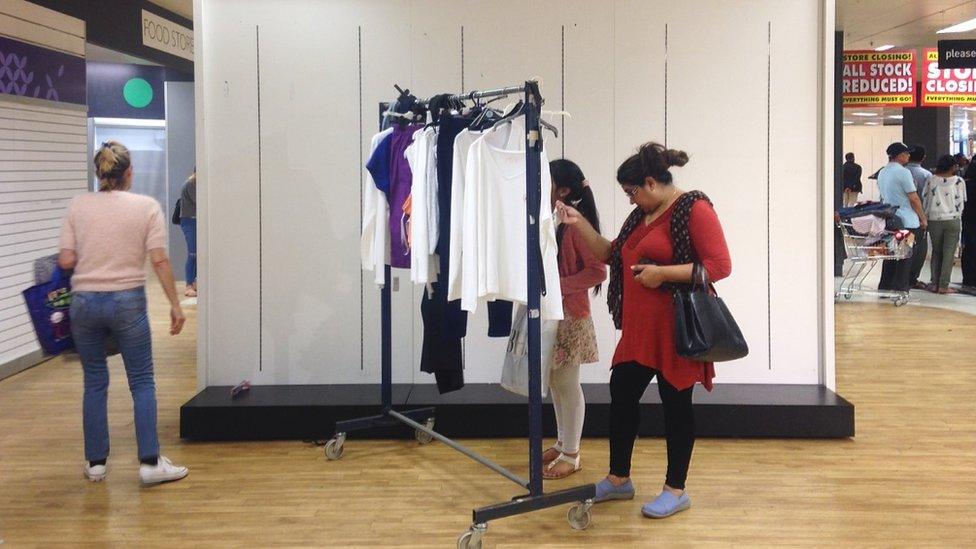
By the BBC's Emma Ailes, at one of the last BHS stores
Scattered clothes rails, empty hangers and a few dwindling piles of stock are all that's left at BHS Walthamstow in north London. "Last days!" the large red and yellow signs on the door proclaim. "Everything 70% off".
A crowd has turned up for the closing day of this British High Street stalwart, scouring the shelves for one final bargain. The long queue for the till stretches across the gutted shop. The refrigerators in the food hall are on but empty. Even the fixtures and fittings are up for grabs.
One staff member, wearing a pink feathery party head-dress but also holding a tissue, pauses to hug a colleague.
"It's really sad talking to the customer services people who are out of a job and will be signing on," says local shopper Keisha Cook, who's here with her mum Carmen. "But I can't say I normally came here. It was too pricey. Honestly, for us, it's just another shop front changing."

Years of under-investment and failing to react effectively to intense competition led to the slow demise of BHS over the past two decades.
Its most recent owners have also been blamed following an investigation by a joint committee of MPs last month.
They described billionaire retailer Sir Philip Green, who owned BHS from 2000 to 2015, as the "unacceptable face of capitalism".

A history of a High Street stalwart
1928: A group of American entrepreneurs set up British Home Stores. The first store is in Brixton and nothing in the store costs more than a shilling (5p) - double that of rival Woolworth's maximum price of sixpence
1929: BHS raises its maximum price to five shillings (25p) allowing it to sell home furnishings, including drapery
1970: The firm expands steadily in the post-war era - by the beginning of the year it employs some 12,000 workers in 94 stores across the UK
1985: BHS begins to franchise its brand to stores around the world, to which it supplies products and support
1986: The store merges with designer Sir Terence Conran's Habitat and Mothercare to form Storehouse Plc, and the British Home Stores name is replaced with BhS, then Bhs and eventually BHS
2000: Retail billionaire Sir Philip Green buys BHS from Storehouse Plc for £200m
2002: BHS becomes part of the Arcadia empire, controlled by Sir Philip, when he buys the clothing group and its Topshop, Dorothy Perkins and Burton brands
2005: The store resurrects its British Home Stores branding, but it is losing ground to cheaper rivals such as Primark
2015: Sir Philip sells the loss-making BHS for £1 to Retail Acquisitions led by Dominic Chappell, writing off £215m of debts in the process
2016: BHS begins an insolvency procedure to reduce its rents and transfer its pensions liabilities into the Pension Protection Fund, the government-supported rescue agency

Sir Philip, who has promised to sort out a £600m pensions blackhole at BHS, could also be stripped of his knighthood.
Writing in the Sunday Mirror, the shadow chancellor John McDonnell called for an overhaul of the honours system and restated his call for former BHS boss Sir Philip to lose his title.
Meanwhile, if talks between Sir Philip and the pensions regulator fail, then the 11,000 BHS staff who have lost their jobs will get a smaller pension than expected.

Analysis
By Simon Jack, business editor
In one way the story of BHS is not unique. It is an everyday tale of commerce - healthy businesses thrive, sickly ones perish, the High Street evolves - that's life.
In many others it is not. It is also the story of two controversial owners.
Sir Philip Green bought BHS for £200m in 2000 and in the early years it made profits. All of these profits were taken out, quite legally, in dividends in the years up to 2004.
BHS then limped along for another decade through a recession, being kept alive by loans from the rest of Sir Philip Green's empire until it was sold last year for just £1.

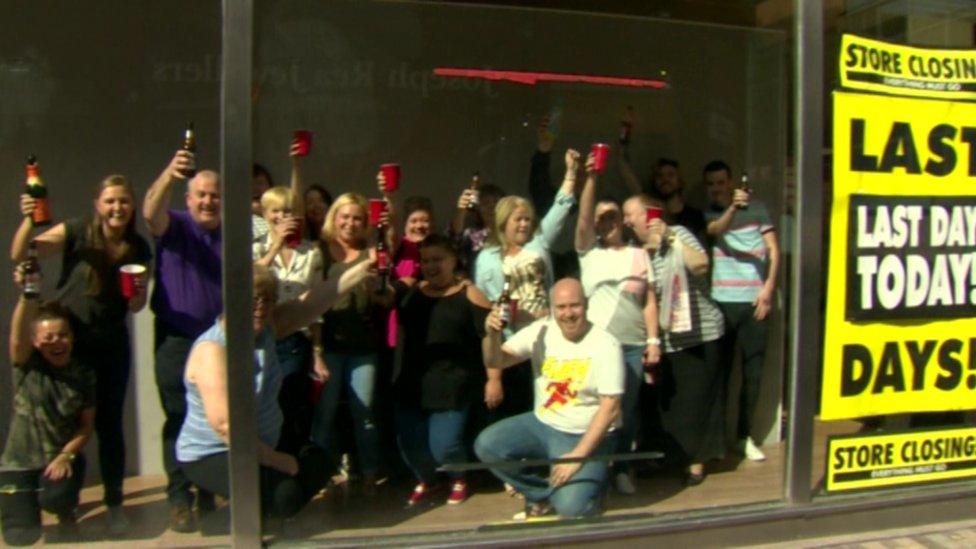
The Belfast store ceased trading on Sunday afternoon
Staff in the Belfast city store gathered behind the shop's front window shortly after closing time, with drinks to toast their years of work at the store..
And Steve Britten, manager of the final store to close in Wales, in Swansea, said: "We had to open early because the queue was absolutely huge and our poor customers were getting wet.
"We've had a really difficult week but we've had an absolute ball of a time. We've dressed up every day and had party themes.
"The staff have had big smiles on their faces but I think tonight there's going to be a lot of emotion, when it hits us that it's all over for the last time."
The last 22 stores that closed were:
Exeter
Surrey Quays, London
St Enoch Centre, Glasgow
Metrocentre, Tyne and Wear
York
Merryhill, West Midlands
Romford, east London
Harrow, north-west London
Doncaster
Walthamstow, east London
Uxbridge, west London
Bexleyheath, Kent
Leicester
Norwich
Belfast
Kingston, Surrey
Hanley, Staffordshire
St James, Northampton
Swansea
Wood Green, north London
Cribbs Causeway, Bristol
St Albans, Hertfordshire
- Published28 August 2016
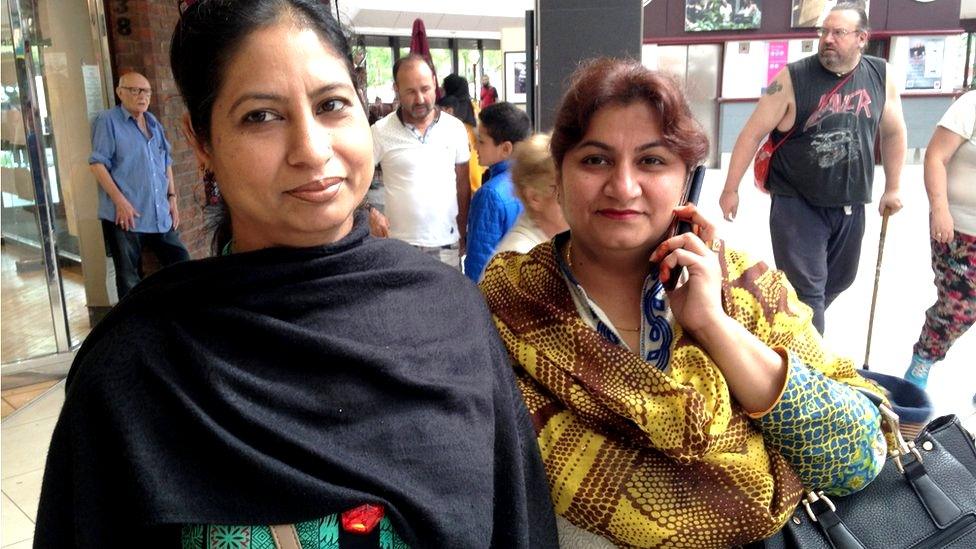
- Published26 August 2016
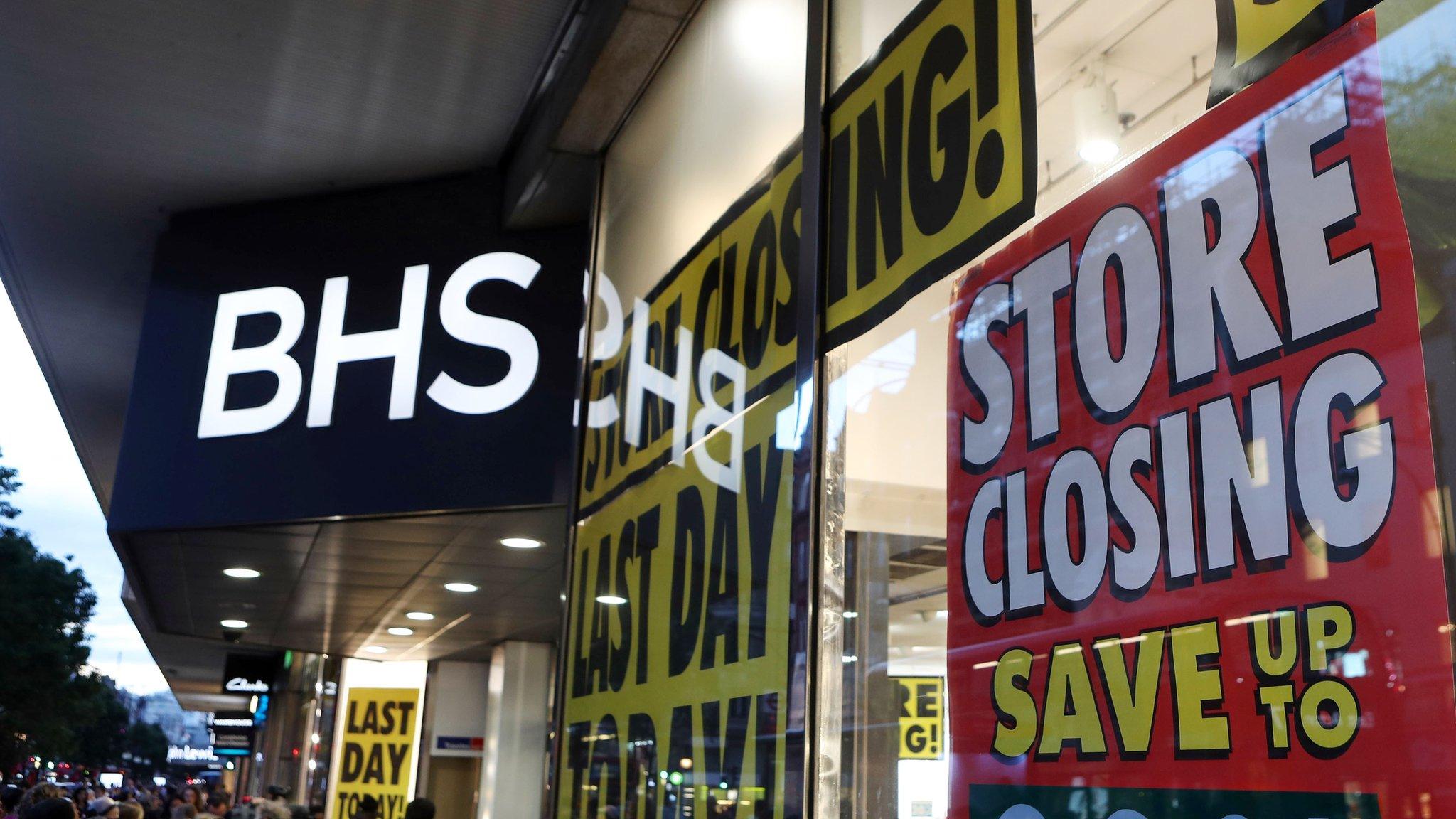
- Published28 August 2016
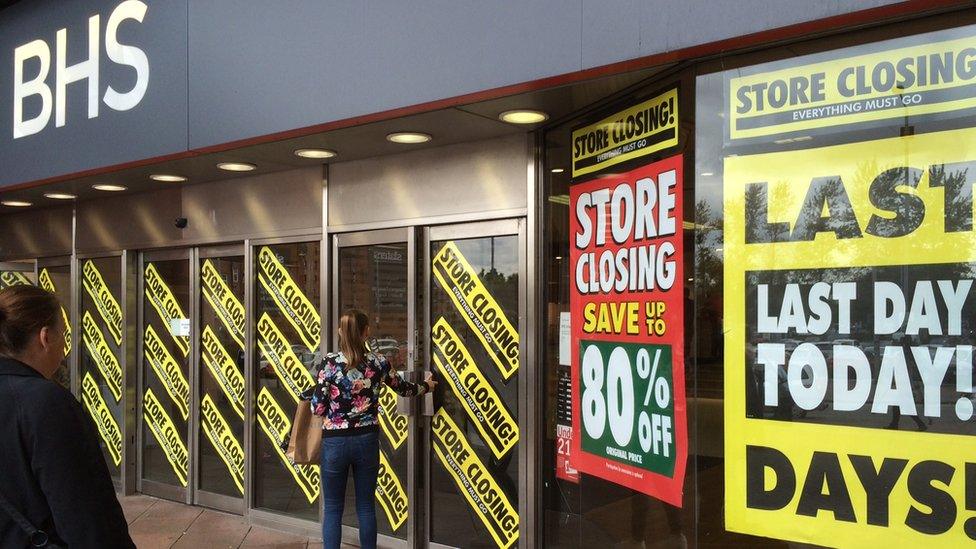
- Published2 June 2016
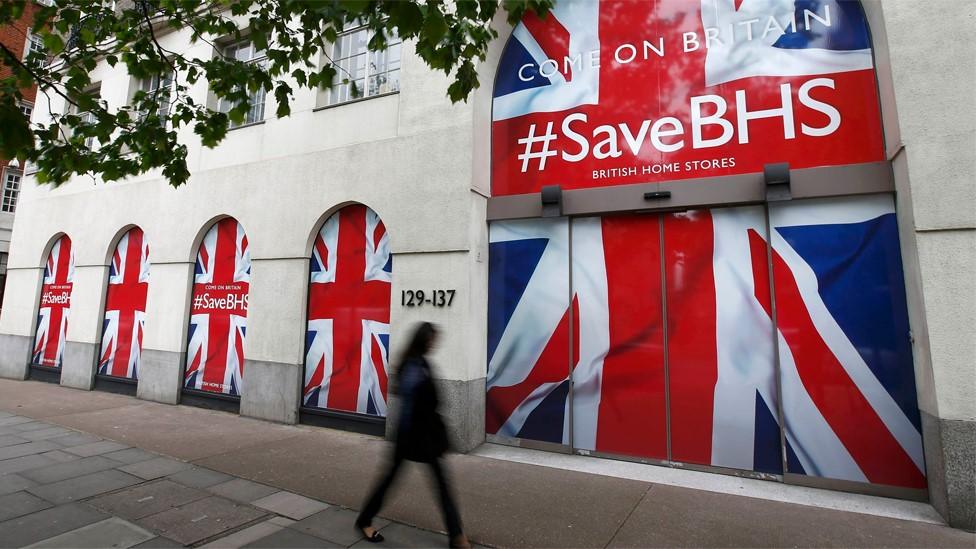
- Published25 April 2016
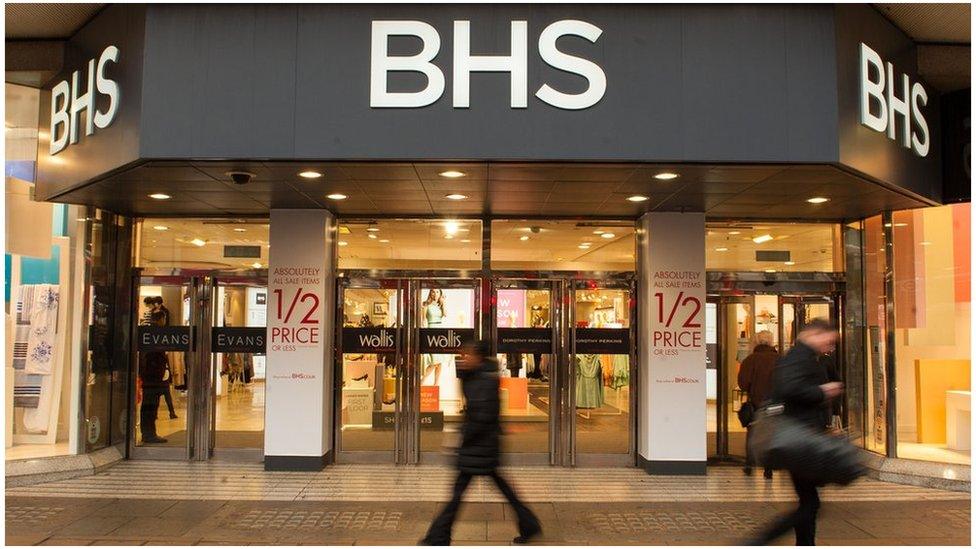
- Published1 May 2016
